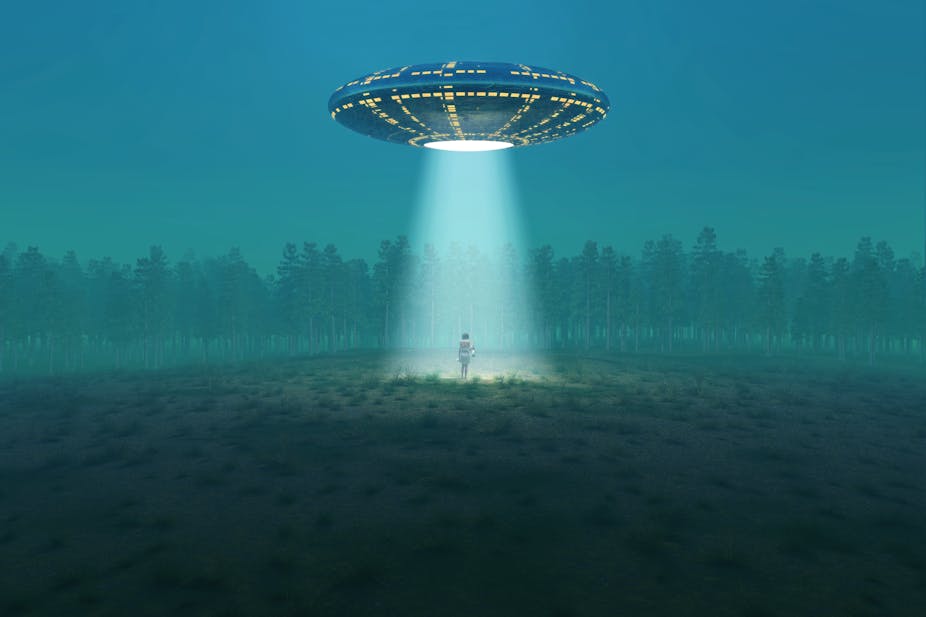In a recent interview, federal attorney-general George Brandis laments that deniers of climate science are being “excluded” from the debate. On the surface this seems a justifiable complaint, but the point hangs on what he means by “excluded”. Brandis said he was:
…really shocked by the sheer authoritarianism of those who would have excluded from the debate the point of view of people who were climate change deniers.
The literal sense of “excluded” implies that no commentary is permitted that does not resonate with accepted scientific wisdom on climate change. This is clearly not the case. Australia boasts one of the world’s best examples of mainstream climate science denial, evident in both expressed political opinion and in the provision of media platforms for those wishing to express such views.
A more figurative sense of “exclusion” might be that those who do not accept the scientific findings are under social or political pressure to keep silent. This is where it gets interesting.
Echoes of vaccination and evolution ‘debates’
Debates over disparate areas such as vaccination and creationism survive because of a call to see both sides of the coin. The truth, at least for these issues, is that there is no coin. To pretend otherwise is to perpetuate an irrational approach.
Climate change is not as well understood as vaccination or evolution, and I would not put deniers of climate science in the same camp as anti-vaccination and anti-evolution movements, but there is an increasing trend among them all to adopt similar methods.
The most obvious of these is appealing to the right to be heard, to see both sides of the coin. Brandis hopes that our natural repulsion at excluding a particular view from the public arena will be aroused in support of climate science denial. This, however, ignores a vital characteristic of public debate: when ideas suffer body blows of sustained scientific refutation any attempt to maintain their status by appeal to an equal right of hearing is also an attempt to exempt them from evidential requirements and argumentative rigour.

The rules of rational engagement demand evidence and argument, not repetitive appeals for a fair hearing. If the evidence in support of a view is not forthcoming, or if the arguments in its favour are weak, its public profile should diminish.
The very nature of a fair hearing is that evidence is weighed and arguments heard, and the ultimate fate of an idea should be a function of this process. This is not to say that it can never be resurrected, or that investigation cannot continue, but simply that it must lose epistemic credibility in proportion to its failings. Anything else is dogma, and this is what much of climate science denial has become.
Brandis has confused the right to speak an idea with the non-existent right that the idea be given credibility. He says in the interview that the scientific community and its supporters simply attempt to delegitimise “the views of those who disagree, rather than engaging with them intellectually and showing them why they are wrong”. This is demonstrably false, as many attempts are regularly made to do just that.
Continually arguing for the right to engage and then refusing engagement is what earns the moniker “denier”. The explanation by “sceptics” of climate science, vaccination and evolution given to cover lack of engagement centres on conspiracy theories. Conspiracies of scientists, political movements and business interests supposedly explain the absence of argument.
Demanding a false balance of beliefs
The fact is that deniers of climate science are as free as anyone else to make their case. That the case is not being made is not a function of suppression, it is result of lack of evidence.
Other similarities with vaccination and evolution include contemptuous use of the word “believe” (also seen in the Spiked interview), which assumes an equality of cognition between belief in climate science and belief in, say, alien abduction. It ignores that belief can be the result of blind acceptance or the weight of evidence. It also portraits belief as a weakness and scepticism as a strength, but belief is not weakness if it based on evidence and argument, and scepticism is not strength if there is no engagement.
It’s bad enough that the right to be heard is misunderstood or misrepresented as the right to be taken seriously, but this is happening in the domain of public policy.
There is a difference between public expression of an idea and urging public support for that idea. The former is a statement of opinion; the latter is a call for government action (or inaction). Brandis seems to want climate science denial front and centre in debates of public policy, in the same manner that a false balance has been delivered through media representation of the issue.
It’s one thing for media organisations or community groups to attempt to represent scientific consensus as they will, but it is qualitatively different and far more dangerous for governments to do the same. Australians have the right to expect their government to act on evidence, not to promote false balance.
Deniers of climate science are not being excluded, they are being asked to step up. That they are failing to do so is nobody’s fault but their own.
Thank you for taking part in today’s Author Q&A with Peter Ellerton. You can read his responses below. We hope to see you next time.

